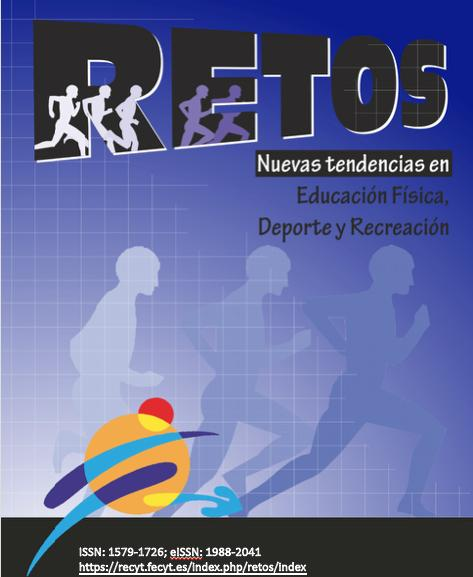Content validation of the instrument “Individualized Teaching Plan applied to Physical Education” - A Proposal for Intervention in Portugal
DOI:
https://doi.org/10.47197/retos.v48.96107Keywords:
Inclusion; PE; Individualized Teaching Plan; Portugal.Abstract
The inclusion of students in Physical Education classes still faces some problems and many Physical Education teachers consider that they do not feel prepared for inclusive education. The Individualized Teaching Plan applied to Physical Education is a document that allows obtaining a work plan so that teachers can work more effectively with their students with disabilities.
The aim of this study was to report the content validation process of the instrument “Individualized Teaching Plan applied to Physical Education” in the Portuguese population. The sample consisted of 12 evaluators/judges all with a degree in Physical Education and training and/or experience in special education, 6 teaching in primary and secondary education and 6 in higher education. Participants were aged between 29 and 61 years old and had 2 and 35 years of teaching service. The document is structured in three parts: I. Student information; II. Student Performance Level and III. Physical Education Program. In each of the parts, the evaluators/judges analyzed the clarity of the language, theoretical relevance, and feasibility of application. As well as expressed, their opinion about the proposal, which may or may not be maintained. We conclude that, in general, the evaluators/judges revealed that the information was adequate and that it should be maintained. Some suggestions made by the evaluators/judges who participated in the study were also considered.
Keywords: Inclusion; PE; Individualized Teaching Plan; Portugal.
References
Block, M. Kwon, E. & Healy, Sean (2016). Preparing Future Physical Educators for Inclusion: Changing the Physical Educa-tion Teacher Training Program. Revista da Sobama, 17(1); 9-12. https://doi.org/10.36311/2674-8681.2016.v17n1.02.p9
Braun, V. & Clarke, V. (2006) Using thematic analysis in psychology. Qualitative Research in Psychology, 3, 77-101.
Celestino, T. & Pereira, A. (2019). A inclusão e a formação de professores de educação física: um estudo exploratório. Desporto e Atividade Física para Todos – Revista Científica da FPDD, 5(1), 49-54.
Cubero, H., Atienzar, D. (2015). Deporte adaptado y escuela inclusiva. Editorial GRAÓ, Barcelona.
Desgagné, S. (2007). O conceito de pesquisa colaborativa: a ideia de uma aproximação entre pesquisadores universitários e professores práticos. Revista educação em Questão, Natal, 29(15), 7-35.
Fiorini, M. & Manzini, E. (2014). Inclusão de alunos com deficiência na aula de educação física: identificando dificuldades, ações e conteúdos para prover a formação do professor. Revista Brasileira de Educação Especial, 20(3), 387-404. http://dx.doi.org/10.1590/S1413-65382014000300006
Garcia, J., Barrientos, G. & Ramos, D. (2013). Deporte: Enfoque Multidisciplinar Habitos saludables, entrenamiento desportivo, prevención de lesiones e instalaciones deportivas. Editorial Académica Española.
Greguol, M., Malagodi, B. & Carraro, A. (2018). Inclusão de alunos com deficiência nas aulas de Educação Física: atitudes de professores nas escolas regulares. Revista Brasileira de Educação Especial, 24(1), 33-44.
Hernández, M, Sánchez, P. & Gres, N. (2014). La inclusión en la actividad física y deportiva La práctica de la educación física y deportiva en entornos inclusivos. Editorial Paidotribo, Espanha.
Liberman, L. & Houston-Wilson, C. (2009). Strategies for Inclusion – A Handbook for Physical Educators. United States of America, 2nd Edition, Human Kinetics.
Munster, M. (2013). Inclusão de estudantes com deficiências em programas de educação física: adaptações curriculares e metodológicas. Revista Brasileira de Atividade Motora Adaptada, 14 (2), 27-34.
Munster, M. A. V., Lieberman, L., Rivera, A. S., Houston-Wilson, C. (2014b). Plano de ensino individualizado aplicado à educação Física: validação de inventário na versão em português.” Revista da Sobama 15 (1): 43-54.
Oliveira, P. & Van Munster, M. (2012). Validação de conteúdo de um instrumento de avaliação do esquema corporal para crianças com cegueira. Revista Educação Especial, 25(44): 563-586.
Samalot-Rivera, A., Munster, M. A. V., Lieberman, L. J., and Houston-Wilson, C. (2017). Validación de contenido del Plan Educativo Individualizado Aplicado a la Educación Física: versión en español. Estudios pedagógicos, 43 (2), 293-314.
Qi, J. & Ha, A. (2012). Inclusion in Physical Education: A review of literature. International Journal of Disability, Development and Education, 59(3), 257- 281. DOI: 10.1080/1034912X.2012.697737
Sarma, A. (2017). A critical review on benefits of different physical education programs in school. International Journal of Physical Education, Sports and Health,4(2): 86-88.
Downloads
Published
How to Cite
Issue
Section
License
Copyright (c) 2023 Retos

This work is licensed under a Creative Commons Attribution-NonCommercial-NoDerivatives 4.0 International License.
Authors who publish with this journal agree to the following terms:
- Authors retain copyright and ensure the magazine the right to be the first publication of the work as licensed under a Creative Commons Attribution License that allows others to share the work with an acknowledgment of authorship of the work and the initial publication in this magazine.
- Authors can establish separate additional agreements for non-exclusive distribution of the version of the work published in the journal (eg, to an institutional repository or publish it in a book), with an acknowledgment of its initial publication in this journal.
- Is allowed and authors are encouraged to disseminate their work electronically (eg, in institutional repositories or on their own website) prior to and during the submission process, as it can lead to productive exchanges, as well as to a subpoena more Early and more of published work (See The Effect of Open Access) (in English).
This journal provides immediate open access to its content (BOAI, http://legacy.earlham.edu/~peters/fos/boaifaq.htm#openaccess) on the principle that making research freely available to the public supports a greater global exchange of knowledge. The authors may download the papers from the journal website, or will be provided with the PDF version of the article via e-mail.


